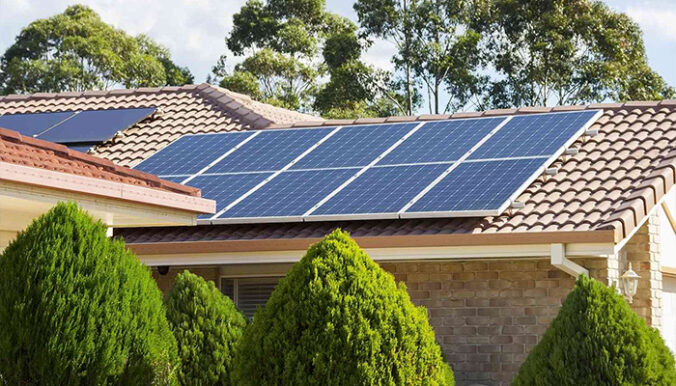When referring to self-consumption, one of the most frequently asked questions is how many kWh a solar panel produces. The answer to this question depends on the price of the project and the space for the installation. Knowing in depth how many kWh can produce a plate, depends on the power and different factors that you should keep in mind. The panels have different numbers in reference to their power, but you should understand what they mean.
How much kWh does a solar panel produce
The answer to this question will depend on the panel since there are different power ratings. Another very important aspect to keep in mind is that over the years the power of the panels has been increasing. At the same time, prices have been decreasing.
The power generated by solar panels is measured in watts (W). There are different powers in the panels, you will find it indicated on the plate that you are looking for your installation. The power between solar panels ranges from 250W to 300W of energy. But it is true that nowadays it is common to see solar panels in homes with higher powers, such as 500W, there are also some of lower powers such as 150W.
In the case that you have a common panel of about 300W, this indicates that for every hour of sunshine the power generated is 300W. This leads to the following calculations, suppose it is a sunny spring day, in a warm area, the calculation would be:
To make the annual check, suppose that these five hours are an annual average (compensating the hours of less sunshine in winter by the hours of more sunshine in summer), you will make the following calculation:
1.5 kWh per day x 365 days of the year = 547 kWh per year for a 300W solar panel.
With this data you can make approximations, the consumption of kWh needed by an average home is about 8000kWh per year. This allows you to make the installation with the size and panels you need to meet the needs of your home.
The hours of sunshine and its impact on the kWh produced by a solar panel
In the previous example it is simple, calculating 5 hours of sunshine in a warm area, in the spring-summer season, but is it too little for the cities in the south of the country?
What you should consider when buying a panel and the first thing you should look at is the wattage of the solar panels 300W or 500W. These numbers refer to the power that the panels can provide under optimal conditions.
But these conditions are not always and not everywhere.
Thus, there may be 6, 9, or 12 hours of sunshine in both northern and southern cities in summer, but very different hours of sunshine.
The incidence of the sun on the panels is higher in hot areas, so it is more likely that in these areas the panels reach the appropriate power 300W during the year. But in other cases it will be more difficult.
The new materials and innovations that are made in solar panels, are getting that even on days in which the weather conditions are not suitable, you can extract energy, without reaching the maximum.
It is true that to use this tool you must have some technical knowledge about photovoltaic energy.
The solar panels have a nominal generation power, which reaches in suitable conditions and should be guided by it.
However, it is true that it may not always reach this power, depending on the geographical area in which the installation is located. Therefore, you must take into account the three points mentioned above. Without them, you cannot make a real calculation of the kWh that the panel of your installation can generate.
What kWh output should you choose for your solar panel?
The answer to this question depends on:
– The budget you have.
– Your energy consumption and how much you want to cover with solar energy.
– The amount of space you have available for the installation.
The solar panels that have a higher power have a larger size, but can occupy a smaller total space. The price of these panels is higher, although it can be, that the set comes out more economical than a greater number of plates with less power.
If you take into account all the tips in this post, you will be able to solve your doubts and find your way around kWh and panels of all types.


Leave a Reply